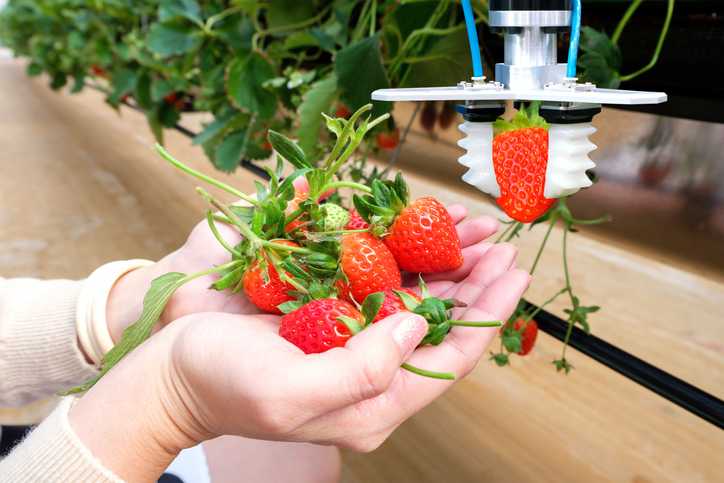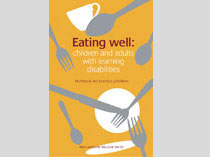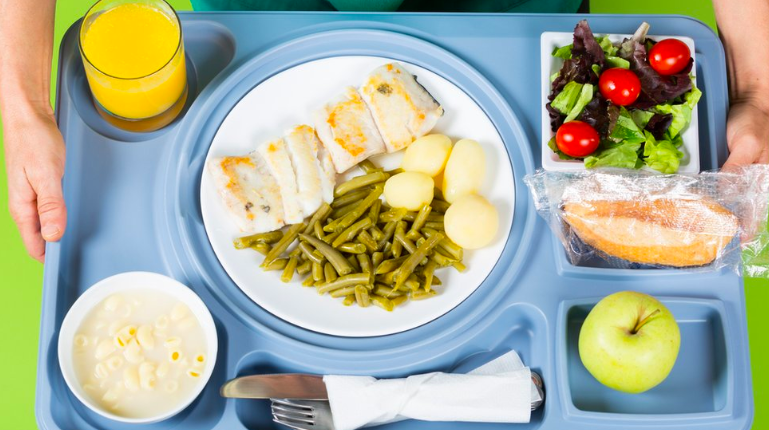Category Archives: News
The Caroline Walker Trust 30th Anniversary Awards
This year, The Caroline Walker Trust is celebrating its 30th anniversary with an Awards Reception on 12 November at Chandos House, RSM in London. Our trust is named after the late, distinguished nutritionist, writer, and campaigner Caroline Walker, who inspired a generation of nutritionists and food campaigners, showing them that the public was interested in the academic science behind good food and improved diets.

The aim of our awards scheme is to recognise and celebrate distinctive and outstanding work in promoting public health which maintains and advances the standards of food and nutrition. The Nutrition Society, The Association for Nutrition and SENSE are supporting our award scheme. We are looking for nominations for the following categories;
- Nutritionist of the Year
- Freelance Nutritionist of the Year
- Charity Food Campaigner of the Year
- Local Food Hero of the Year
- Media Campaigner of the Year
- CWT Lifelong Achievement Award
For more information regarding the nominations please go to https://www.cwt.org.uk/events/30th-anniversary-of-the-caroline-walker-trust/
CWT response to the Department of Health Childhood Obesity Consultation
Our Trust is very aware that childhood obesity has become one of the most serious public health issues of our time. Overweight and obese children are most likely to remain obese into adulthood and develop non-communicable diseases. (1) It has been well established that obesity is multifactorial and a result of biological, behavioural and environmental factors that are well beyond the control of a single individual.
Food advertising, television and the internet, have been identified as factors contributing to the excess consumption of energy dense and nutrient poor foods high in fat, salt and sugar (HFSS) in children. (2, 3, 4) A number of systematic reviews have found food advertising to influence children’s food preferences, purchase requests and consumption. Research suggests that children are unable to understand the persuasive intent of marketing and so remain a vulnerable group to its effects. (5)
It is clear from the evidence base that short-term exposure to food advertising increases energy consumption, specifically that of unhealthy foods and that there is a need for policymakers to address this public health issue. (6) Therefore, we welcome the Government’s consultation on further restricting advertising for products high in fat, salt and sugar. This is a positive step towards the Government’s ambition of halving childhood obesity by 2030.
As trustees of The Caroline Walker Trust, we fully support the introduction of a 9 pm watershed on HFSS adverts across all media. It reflects changing viewing habits with further Ofcom research finding children are increasingly watching videos, TV programmes and films on their own devices, often on- demand, rather than on a dedicated TV channel with parental supervision.
Television
We support Option 1: introduce a 9 pm – 5:30 am watershed on broadcast TV. Research shows that junk food advertising influences children’s food preferences (7), and how much they eat (8), with one study finding that children who can recall seeing unhealthy food and drink adverts on television daily are more than twice as likely to be obese. This leads to children pestering parents to purchase unhealthy products. (9) Restricting the advertising of products high in fat, salt and sugar during the times further when children are most likely to watch television, would help reduce their intake of products high in fat, salt and sugar (10,11,12).
Nutrient profiling has been recognised by WHO as a useful tool for a variety of applications and is considered to be a critical tool for the implementation of restrictions on the marketing of foods to children.
We support the use of the Nutrient Profile Model to identify food and drinks which should be subject to the restrictions. This is an evidence-based tool which is already used to restrict advertising.
Online
We support Option 1: introduce a 9pm-5.30 am watershed online. Evidence shows that children who used the Internet for over 3 hours per day are almost 4 times more likely to buy junk food products than children who used the Internet for little or no time. (13) It also makes children almost 3 times more likely to pester their parents for junk food. Restricting the advertising of products high in fat, salt and sugar online would help reduce children’s intake of products high in fat, salt and sugar. (14)
We support the use of the Nutrient Profile Model to identify food and drinks which should be subject to the restrictions. This is an evidence-based tool which is already used to restrict advertising.
—the end—
1 Sahoo, K., Sahoo, B., Choudhury, A. K., Sofi, N. Y., Kumar, R., & Bhadoria, A. S. (2015). Childhood obesity: causes and consequences. Journal of family medicine and primary care, 4(2), 187–19.
2 Adams, J., Tyrrell, R., Adamson, A. J., & White, M. (2012). Effect of restrictions on television food advertising to children on exposure to advertisements for ‘less healthy’ foods: repeat cross-sectional study. PloS one, 7(2), e31578.
3 Kelly, B., Halford, J. C., Boyland, E. J., Chapman, K., Bautista-Castaño, I., Berg, C., … Summerbell, C. (2010). Television food advertising to children: a global perspective. American journal of public health, 100(9), 1730– 1736.
4 Boyland, EJ, Whalen, R. (2015). Food advertising to children and its effects on diet: review of recent prevalence and impact data. Pediatr Diabetes, 16( 5), 331‐ 337.
5 Boyland E, Nolan S, Kelly B (2016). Advertising as a cue to consume: a systematic review and meta-analysis of the effects of acute exposure to unhealthy food and non-alcoholic beverage advertising on intake in children and adults. Am J Clin Nutr, 103 (2), 519-533.
6 Russell, S., Croker, H., & Viner, R. (2018). The effect of screen advertising on children’s dietary intake: A systematic review and meta-analysis. Obesity Reviews, 20(4), 554-568.
7 Boyland E, Nolan S, Kelly B (2016). Advertising as a cue to consume: a systematic review and meta-analysis of the effects of acute exposure to unhealthy food and non-alcoholic beverage advertising on intake in children and adults. Am J Clin Nutr, 103 (2), 519-533.
8 Public Health England (October 2015). Sugar Reduction: the evidence for action.
92018. Cancer Research UK. A Prime Time for Action: new evidence on the link between television and on-demand marketing and obesity.
10 http://obesityhealthalliance.org.uk/wp-content/uploads/2019/02/OHA-9pm-watershed-position-Feb-2019.pdf
11 Hastings, G. (2006). The extent, nature and effects of food promotion to children: a review of the evidence. WHO 16.
12 McDermott L et al. (2006). International food advertising, pester power and its effects. International Journal of Advertising.
13https://www.cancerresearchuk.org/sites/default/files/jfm_briefing_jan_19.pdf
14https://www.cancerresearchuk.org/sites/default/files/jfm_briefing_jan_19.pdf
Are you a potential CWT trustee
The CWT is currently looking for two new Trustees to join us. If you’re a Registered Nutritionist or a Registered Dietitian and can commit to six Board meetings a year, then please apply by sending your CV or the link to your LinkedIn profile to [email protected] outlining as to why you would make a good trustee in your covering email.
Here is our current Trustee Role Description to guide your application:
Overview of Trust
Salary: Voluntary/unpaid. Expenses incurred while travelling to meetings.
Hours: 4 – 6 Board meetings a year. Ad hoc committee meetings.
Tenure: 2 years, eligible for a further tenure.
Location: Central London
The Object of the Charity: to promote public health and in particular (though without prejudice to the generality of the foregoing) to protect the quality of food for the public benefit.
The role of the Board of Trustees
- To promote and administer the charitable object above by the specific powers outlined in
governing document. - To receive assets from donors, safeguard them and apply them to the charitable purposes of The Caroline Walker Trust (CWT).
- To keep proper accounts of all monies received and paid for on behalf of the Charity.
- To make regulations for the management of the Charity and an awards scheme.
- To assess the changing environment and approve the organisation’s strategic direction.
- To keep a record of the proceeding of the Trustee’s meetings where decisions have been made.
- The board must always act in the best interest of the trust.
- The board must act as a group and not as individuals, making decisions as a collective.
Duties of a Caroline Walker Trustee (non-Officer)
- To ensure the CWT complies with its governing document, charity law and other relevant legislation or regulations
- To ensure the CWT pursues its objects as defined in its governing document.
- To ensure the CWT applies its resources exclusively in the pursuance of its objects.
- To contribute actively to the board of trustees by giving firm strategic direction to the CWT, setting overall policy, defining goals, setting targets and evaluating performance against agree targets.
- To safeguard the good name and values of the CWT.
- To ensure the Financial Stability of the CWT by being certain that the finances are adequate for its current needs and its short to medium term strategy.
- To approve major policies, major actions of the organisation such as capital expenditure and major changes in activities and services.
- Each trustee should use any specific skills, knowledge or experience they have to help the board of trustees reach sound decisions. This may involve leading discussions, identifying key issues, providing advice and guiding new initiatives, evaluating or offering advice on other areas, such as finance, marketing, law, pubic relations or nutrition in which the trustee has particular expertise.
Minimum Time Commitment
- Trustees are expected to read over induction pack before their first board meeting.
- Trustees are expected to attend all board meetings. Board meetings are held 4 – 6 times a year after normal office hours. Board meetings last for approximately two hours.
- Meeting dates are arranged four months in advance.
- Trustees may be asked to join one of the committees, including Judging Panel for the CWT Award, Fundraising and Event organising.
- Trustees from a Nutrition or Dietetic background are expected to take part in updating of resources.
- Trustees can claim out of pocket expenses incurred in travelling to meetings.
Person Specification
- A commitment to the objectives and aims to the CWT.
- A willingness to attend board meetings and ad hoc committee meetings.
- Integrity and strategic foresight.
- Good, independent judgement without conflict of interest or self-interest.
- A willingness to speak your mind and to challenge any information put forward.
- Provide candid and constructive criticism, advice, comments and praise.
- An understanding and acceptance of the legal duties, responsibilities and liabilities of trusteeship.
- An ability to work effectively as a member of a team and to make collective decisions for the good of the Trust.
- Previous board experience.
Please send your CV or the link to your LinkedIn profile to [email protected] with an outline as to why you would make a good trustee in your covering email.
Monitoring and restricting digital marketing of unhealthy products to children and adolescents (2019)
The latest evidence shows that children and adolescents are still regularly exposed to digital marketing of many unhealthy products. The WHO has just produced a report which describes current digital marketing strategies, the challenges arising from current practices, and some policy options to tackle digital marketing to children and adolescents.
Click here to download the report.
Reformulation and innovation
The next SENSE meeting will be held on Friday 22 March 2019 in London. The topics discussed will include; Reformulation, innovation with small business and brand building.
Click here for more information.
Bittersweet Brexit by the Food Thinkers

The Centre for Food Policy announce their first Food Thinkers of 2019 with Dr Charlie Clutterbuck, discussing Bittersweet Brexit – where are we heading with our food and farming? Chaired by Professor Tim Lang.
The seminar will take place on Wednesday 23 January at 5.30pm, here at City, University of London.
With Brexit events moving so quickly, this talk will be a moving feast. The context is that UK food and farming could change more now and more quickly than in the last 70 years. Brexit is a moment of food system restructuring.
Dr Charlie Clutterbuck’s talk will focus on the role of human labour in farm and food provision, asking: (1) Why did it barely feature in UK politics of food when it is so central to how the food system actually works? (2) What does this say about UK food policy debate? (3) Was the silence about food labour part of what delivered the 2016 Brexit referendum vote? (4) What are the food labour issues which now need to be addressed, whatever happens in Brexit politics? (5) How can we make labour more central to







